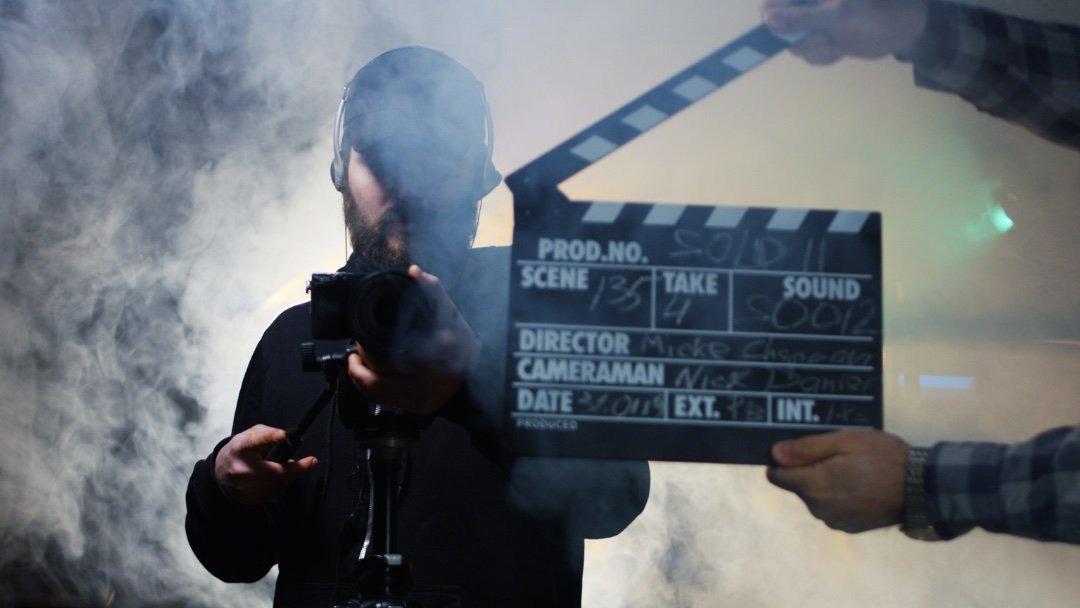
Once you have something people want, you’ll have the leverage to negotiate your involvement in the project.
Step 2: What’s your budget?
Have you ever had to shop for a gift for a close friend? Isn’t your first step deciding your gift budget?
It’s basically the same for your movie. You need to have a realistic idea of what your budget is, and be able to back it up. You might say something like this:
“I can get it in the can for 100k, but if I had 300k I could get a named actor that would increase sales.”
A detail like this shows the specific impact of your budget.
Once you have got a terrific idea for a film, you will need a fantastic script. Assume you have secured the rights to the script or idea, ie: the property, you will need to create a budget and schedule.
Your budget needs to be realistic. I was speaking to a good friend and colleague this week who said the film needed ‘about 5mil’. I asked how they got that fancy number and was told that some director said you needed that much. Here in the UK the average budget is 800k – 1.4m. And the academy award winning The Favourite had a budget of about 3.4mil.
Research your budget. Find a number. Be consistent. Constantly revise your plan according to current market developments.
Raindance offers an excellent evening course: Budgeting and Scheduling. For ultra low budget training: the weekend Lo-To-No Budget Filmmaking.
Step 3: Creating the film business plan
Investors are risk adverse. They will want to see what it is about your project’s plan that will de-risk their investment in your film.
The film business plan is a comprehensive document that outlines the details of you film. Describe who is involved, how much money you need and how you are going to spend the money. You will likely draw comparisons between your film and others. Importantly, you will need to lay out your recoupment strategy. Also important is your film festival strategy.
For some professional help, check out the Creating a Business Plan evening class.
Step 4: Film funding guide
Step 5. Finding investors
There is no magic formula to finding movie investors. Start with people you know. Ask if they know anyone who is interested inh funding movies. Acquaint yourself with the tax advantages available, be is Sec 501(c)(3) in America or EIS in the UK. Both of these schemes offer attractive tax discounts to investors, thereby reducing the risk.
Attending networking events is a great place to meet prospective investors. Learn how to network confidently, and increase your circle of influence. Attend non-film related events and talk to people about your projects. it’s amazing who you meet in these circumstances.
There is no secret to getting funding for your movie. It’s just a numbers game. Some people will want to work with you. Some people will say it’s not for them. And some people won’t return your calls. You will know if someone is interested in your project because they will tell you.
Fade Out
What if you follow all of these steps and invest a huge amount of time and effort without any results? Could you be a victim of misfortune? It is possible. Or, is your project simply undeveloped. Stephen Spielberg famously said ‘all good ideas start out as bad ideas, thats why it takes so long’.
Don’t be afraid to go back to the drawing board. As my dear friend at MasterCard says: ‘Fail Fast – Move on”. And keep moving.
Did you know?
- Raindance members save 20% on filmmaking courses?
You can join online >HERE< and access freebies and discounts immediately - Our open courses are FREE for our HND, top-up BA and postgraduate/MA/ students
- You can book a free 1-1 consultation about our full-time degree filmmaking courses HERE
- The Raindance Guarantee: If any filmmaking course fails to meet your expectations, let us know at the break and we will make a full, 100% no-questions-asked refund
- We don’t teach ‘filmmaking’ at Raindance. At Raindance we make filmmakers.














